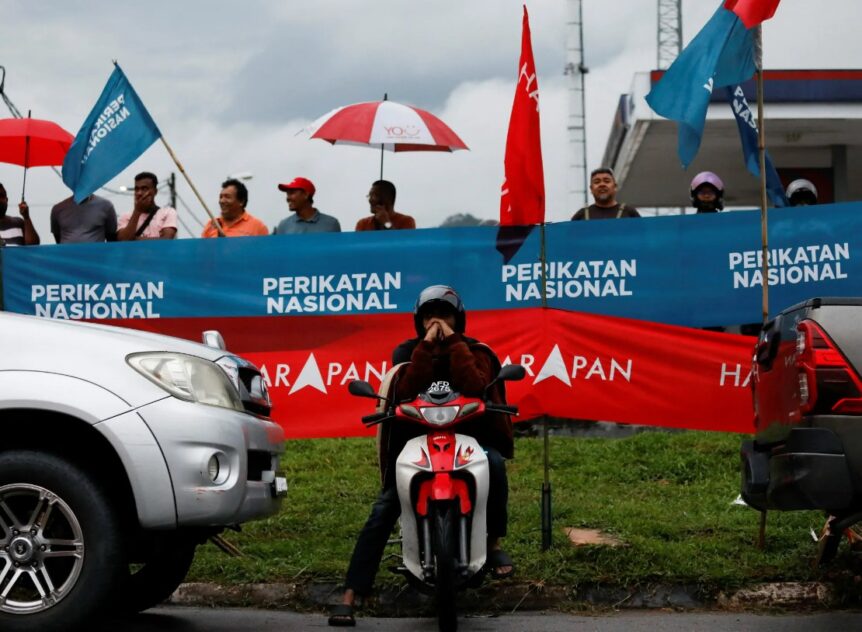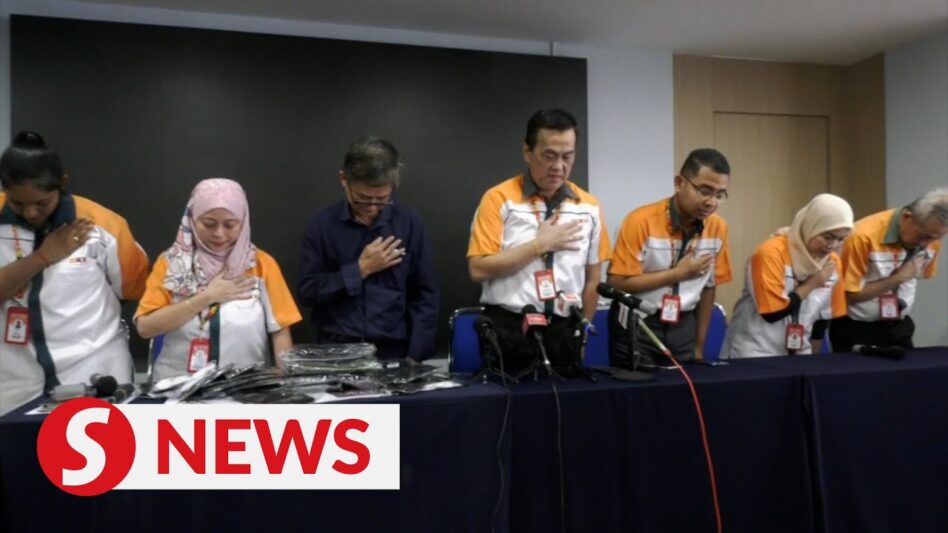FORMER Prime Minister Tan Sri Muhyiddin Yassin was forced to resign on Aug 16 after the 14 UMNO MPs and Tengku Razaleigh Hamzah withdrew their support, leaving him with only 100 MPs including 27 lawmakers from UMNO.
The Gua Musang MP, better known as Ku Li, even wrote to the Dewan Rakyat Speaker to request that he be transferred to a seat near the independent bloc, which does not support the current Government.
The 14 MPs publicly declared that they were not against the Perikatan Nasional Plus (PN+) Government in Putrajaya – they were only against Muhyiddin as Prime Minister.
Muhyiddin, before he stepped down, publicly disclosed that he was under pressure from the UMNO ‘court cluster’ to free them of their charges.
Former Prime Minister Datuk Seri Najib Razak, who attained international notoriety for the global 1MDB scandal, vowed to sue him.
PN’s conditions, briefly and bluntly put, ensures that the Prime Minister would not interfere in court cases.
The Agong could have invited Opposition leader Datuk Seri Anwar Ibrahim, based on parliamentary conventions in the Commonwealth, to form the Government.
Anwar had the nominations of 105 MPs i.e. minus Ku Li who reportedly nominated himself for the PM’s post.
Having said that, the media has reported that Anwar had the ‘secret support’ of the 14 MPs linked to the UMNO ‘court cluster’ and Ku Li, if push came to shove.
Armed with this confidence, Anwar reportedly did not reach out to Gabungan Parti Sarawak (GPS) for its 18 nominations.
GPS itself publicly disclosed this fact and expressed surprise. If Anwar had reached out to GPS, their support would be conditional.
They would want assurances from Anwar that the Federal Government would comply fully with the Malaysia Agreement 1963 (MA63) and Borneo rights.
GPS was flexible with its 18 nominations. They would support any MP that the Agong appoints as PM. However, such support would be conditional.
If Ku Li had been picked as PM-designate on Aug 20 by the Agong, the other 41 Barisan Nasional (BN) MPs was expected to switch camps and support him.
The 41 included Ismail Sabri and 36 other UMNO MPs and four lawmakers from BN component parties viz. MIC (one), MCA (two) and PBRS (one).
Alternatively, the Agong could have decreed that the Prime Minister would be appointed AFTER a confidence motion in Parliament.
Under such circumstances, the confidence motion cannot be a ‘one-horse show’.
Three candidates or more would be proposed and seconded for the job as head of Government.
If no nominee secured at least 51 % of the votes cast, there would have to be a run-off between the top two contenders.
Parliamentary procedures don’t call for all 200 MPs to be present.
The quorum for Parliament to proceed only needs 26 MPs to be present.
That means 14 votes are sufficient to nominate the PM-designate.
The 14 votes do not constitute a majority, i.e. 111 MPs, of the 220 MPs. That’s a different matter.
The 14 votes take the ‘random sampling’ approach and can be considered as reflecting majority in Parliament.
Amendments to the Constitution are a different matter. Notwithstanding the quorum, at least half the MPs in Parliament must be present, and of these two-thirds must vote in favour of the Amendments to be passed.
Article 63 – ‘Privileges of Parliament’ – holds that “the validity of any proceedings in either House of Parliament or any committee thereof shall not be questioned in any court”.
Again, “no person shall be liable to any proceedings in any court in respect of anything said or any vote given by him when taking part in any proceedings of either House of Parliament or any committee thereof”.
Further, the Doctrine of Separation of Powers – a Basic Features Doctrine in the Constitution – presides over the three arms of Government viz. the Executive, Legislature, and Judiciary.
It’s a check and balance situation where no one arm of Government interferes in the other two arms.
The media, the 4th Estate as a public service organisation, keeps an eye on all three arms of Government on matters of public concern and public interest, the court of public opinion and the social media.
Unfortunately, journalism remains about bad news. – Sept 8, 2021
–Joe Fernandez is a longtime Borneo watcher and a regular FocusM contributor.
The views expressed are solely of the author and do not necessarily reflect those of Focus Malaysia.










